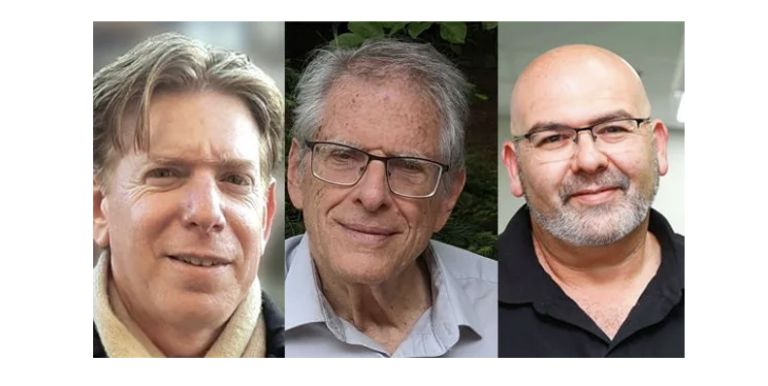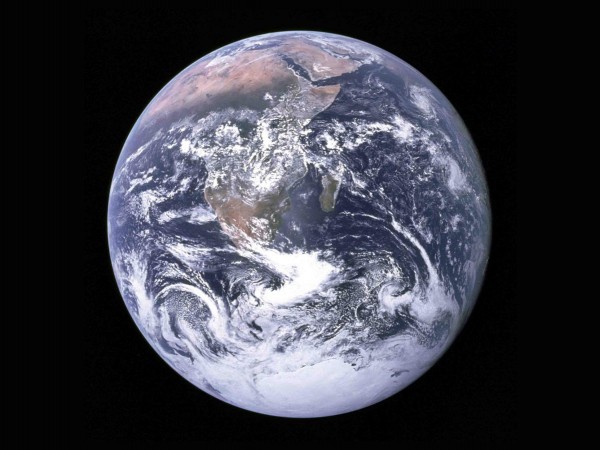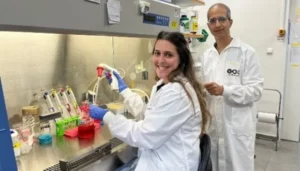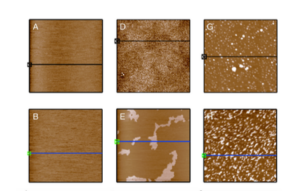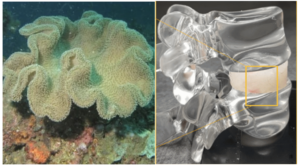Weizmann (Israël) : le Dr Daniel Lellouch met l'astronomie et la physique à la portée du grand public

[:fr]Un soir, il y a un seize ans, deux scientifiques Weizmann (Israël), le Dr Daniel Lellouch et le Pr Daniel Zajfman, futur président de l’Institut Weizmann des Sciences, ont décidé d’emprunter un télescope et ont envoyé une invitation aux lycées de la région pour les convier à venir voir une éclipse de Lune. « Nous avons attaché une webcam au télescope et ils ont pu voir l’éclipse sur grand écran, » évoque le Dr Daniel Lellouch.
Actuellement, le Dr Daniel Lellouch participe à deux recherches : l’expérience Xenon1T en Italie et l’expérience ATLAS au CERN, à Genève. La première vise à résoudre l’énigme de la matière noire, et la deuxième était l’une des deux expériences qui cherchent à prouver l’existence du boson de Higgs. « Le Dr Daniel Lellouch écrit régulièrement de brillants articles dans notre magazine », précise Esther Amar, fondatrice d’Israël Science Info.
« En tant que scientifique, j’ai la responsabilité de transmettre le savoir », précise le Dr Lellouch. Chaque moment de temps libre de Daniel Lellouch est consacré à l’enseignement des sciences. L’idée d’inviter le public à voir le ciel nocturne est depuis devenu l’un des piliers de l’Institut Weizmann via l’activité L’astronomie pour tous. En hiver, les activités d’observation se déroulent dans les environs de Britannia Park. En été, les participants vont au sud de la région de Mitzpe Ramon où ils écoutent les conférences d’un géologue.
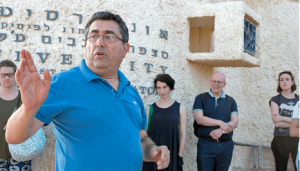
En plus de diriger l’activité L’astronomie pour tous, Daniel Lellouch s’occupe de la compétition Beamline des écoles basée au CERN, où les élèves présentent des projets d’expériences en physique dans le domaine de l’optique. Daniel Lellouch est membre du comité d’évaluation de Beamline et coordonnateur des équipes israéliennes, quatre classes s’y sont inscrites l’an dernier. Il anime également des visites d’étudiants israéliens au CERN. «Ces élèves viennent assister aux conférences de physiciens leaders dans le monde. Quand c’est possible, nous leur faisons visiter les détecteurs géants situés à 100m sous terre. »
Quand il est en Israël, Daniel Lellouch donne gracieusement des conférences sur la science dans les écoles à travers le pays. «Je veux familiariser les élèves avec la science, mais aussi corriger le stéréotype du scientifique en blouse blanche isolé dans son laboratoire, et leur montrer que je suis, avant tout, un être humain. » Bien que l’astronomie ne soit pas vraiment son champ de recherche, Daniel Lellouch a compris que c’est la porte d’entrée pour amener les gens à s’intéresser à la science. « Les lunes de Jupiter sont belles pour tout le monde, même si on ne sait pas exactement à quelle distance elles se trouvent ».
Traduction/adaptation par Esther Amar, Israël Science Info
Source weizmann.ac.il[:en]One evening sixteen years ago, two young Weizmann Institute scientists – Dr. Daniel Lellouch and the future president of the Weizmann Institute of Science, Prof. Daniel Zajfman – borrowed a telescope from what was then youth activities unit at the Institute and sent out an invitation to high schools in the area to come view that night’s lunar eclipse. When some students showed up, they needed a fast change of plan. “We attached a web camera to the eyepiece of the telescope and showed the eclipse on a big screen,” says Lellouch.
Lellouch actually has a couple of “day jobs”: at the Xenon1T experiment in Italy and the ATLAS experiment at CERN, in Geneva. The former aims to solve the riddle of dark matter, and the latter was one of two experiments seeking to prove the existence of the Higgs boson. As a scientist I feel I have a responsibility to pass on that sense of awe.
Dr Daniel Lellouch
Lellouch’s every spare minute, however, is devoted to science education. The idea of inviting the public to view the night sky has since become a mainstay of Institute activity: Astronomy for All. Since the project was initiated, the light pollution from nearby Ness Ziona has grown to the point of interfering with nighttime observation on the Institute campus. Thus, in the winter, activities take place in nearby Britannia Park, and in the summer, participants go south to the Mitzpe Ramon area, where they get lectures from a geologist on the striated formations there, as well as clear viewing after dark.
In addition to directing Astronomy for All, Lellouch is active in the Beamline for Schools competition based at CERN, in which high school students vie to present proposals for small beamline physics experiments. Lellouch is a member of the judging committee, as well as being coordinator of the Israeli teams – four classes entered last year. He also leads Israeli student tours to CERN. “These students get to hear lectures from the leading physicists in the world,” he says, “and, when possible, we let them go deep underground to see the giant detectors.”
When he is in Israel, Lellouch volunteers to give talks on science in schools around the country. “I want to expose them to science,” he says, “but also to rid them of the stereotype of the scientist in a white lab coat, and show them that I am, first of all, a human being.” Although astronomy is not actually his field of research, Lellouch has come to understand that it can be a gateway for getting people interested in science. “The moons of Jupiter are beautiful, even if you do not know exactly how far away they are. As a scientist I feel I have a responsibility to pass on that sense of awe, to expose as many people as possible to what we scientists are doing.”
Source weizmann.ac.il[:]


